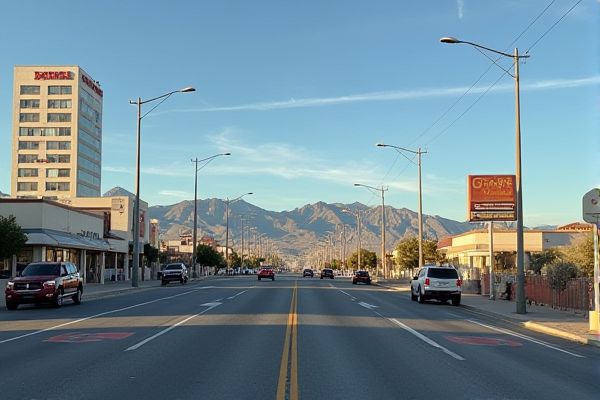
Cost of living in Nevada: Housing prices vary significantly by city. Utilities can be costly in extreme weather. No state income tax advantage. Groceries slightly above national average. Transportation costs are moderate statewide. Gambling can affect personal budgets. Health care expenses may be high. Dining out prices vary regionally. Education costs depend on public vs. private. Sales tax rates are around 8-8.5%.
Housing prices vary significantly by city.
Housing prices in Nevada vary significantly by city, with average home values ranging from $378,666 in North Las Vegas to $519,434 in Reno, and $455,684 in Henderson, highlighting the regional differences within the state. For a more detailed understanding of the costs associated with living in various parts of Nevada, visit the Cost of Living in Nevada webpage. These variations indicate that prospective homeowners should carefully consider their desired location within the state, as prices can reflect distinct economic conditions and amenities available in each city.
Utilities can be costly in extreme weather.
In Nevada, utility costs can be significantly higher during extreme weather, particularly due to increased air conditioning usage, with some households seeing their energy bills rise by as much as 22% or around $70 in a single month. NV Energy offers various programs to help manage these costs, providing essential relief to residents during the intense heat. Through their initiatives, customers can find ways to conserve energy and reduce their financial burden during these challenging periods. For more in-depth information on managing utility bills amidst extreme weather, visit the NV Energy website.
No state income tax advantage.
Nevada offers a significant tax advantage by having no state income tax, allowing residents to keep more of their earnings and avoiding taxes on income sources not derived from within the state. This includes no taxes on Social Security benefits, IRA or 401(k) withdrawals, and pension payouts. To learn more about these benefits, visit the Nevada Tax Advantages page, where you can explore the full scope of financial benefits available to residents.
Groceries slightly above national average.
In Nevada, grocery costs are slightly above the national average, with residents spending between $233 and $266 per month on food, which is about 10.8 percent above the national average. For more detailed information about living expenses in this state, you can explore the Cost of Living in Nevada guide, which provides an insightful overview of the economic conditions and expenses faced by its residents.
Transportation costs are moderate statewide.
Transportation costs in Nevada are moderate, with gas prices slightly below the national average at $3.36 per gallon, and auto insurance premiums averaging $1,381.43, which is higher than the national average. Public transportation costs vary, with Las Vegas having an average fare of $1.17, though costs can be higher in other cities like Reno. For more detailed information, you can visit Nevada Cost of Living on the Consumer Affairs website.
Gambling can affect personal budgets.
Gambling can significantly impact personal budgets in Nevada, leading to profound financial losses, with individuals seeking treatment often facing severe financial strain. Many outpatients struggle with an average debt, experiencing financial crises such as debt, bankruptcy, and foreclosure. For more insight into this issue, refer to the Nevada Problem Gambling Treatment System Annual Report, which provides detailed data and analysis on the subject.
Health care expenses may be high.
Healthcare costs in Nevada are significant, with average monthly health insurance premiums for benchmark plans at $387 per person and family plans ranging from $800 to $1,500 per month. Additionally, costs for doctor visits range from $90 to $137, and emergency room visits can be from $500 to over $2,000, with long-term care costs exceeding national averages. For a deeper understanding of these costs, you can explore the comprehensive insights provided by Unbiased.
Dining out prices vary regionally.
Dining out prices in Nevada vary regionally, with a medium-sized Domino's Pizza costing $13.99, a McDonald's Big Mac at $4.43, and a Taco Bell Combo Meal at $6.43, reflecting variations in food costs across different parts of the state. For more detailed insights into these variations, the World Population Review offers an in-depth look at fast food prices by state.
Education costs depend on public vs. private.
In Nevada, public K-12 education is free for residents, supported by local, state, and federal taxes. However, private school tuition can range from approximately $6,000 to $20,000 annually, depending on the school's reputation, facilities, and grade level. For more information on the cost of living in this vibrant city, you can explore the details at Red Carpet Moving Company.
Sales tax rates are around 8-8.5%.
In Nevada, the total sales tax rate, including state and local taxes, can range from 6.85% to 8.375%, with the highest rates found in areas like Clark County, where the total sales tax rate is 8.375%. For more detailed information on tax rates, you can visit the comprehensive guide on the Try Kintsugi website.
